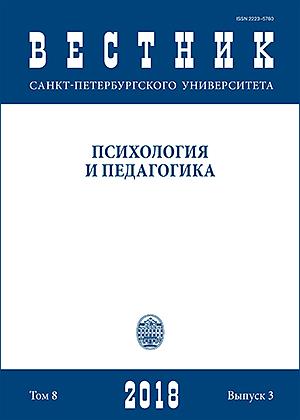The variety of metacognitive feelings: Different phenomena or different terms?
DOI:
https://doi.org/10.21638/11701/spbu16.2018.302Abstract
Conscious experiences accompanying cognition and related to its process are called “metacognitive feelings”. There are several dozens of terms for designating their varieties: “a feeling of confidence”, “a feeling of warmth”, “a feeling of knowing”, “a feeling of familiarity” and many others. Some researchers suggest that these terms denote different mental phenomena, while others point to their similarity. The article contains descriptions of metacognitive feelings and provides a review of their classifications. We distinguish two approaches to understanding the functions and content of metacognitive processes. The “specific approach” suggests that metacognitive experiences initially provide the information about their source, allowing to monitor and to control mental processes. According to the “nonspecific approach”, metacognitive experiences serve as a signal, reflecting the results of unconscious processing without communicating the content and the source of underlying processes. In this case, the aim of consciousness is not to directly control the underlying processes, but to identify the causes of the nonspecific signal. The problem of the variety of metacognitive feelings is resolved in different ways within the two approaches. In the specific approach, the diversity of metacognitions derives from different mental processes, resulting in distinguishable subjective experiences. In the nonspecific approach, metacognitive feelings arise at later stages of information processing as a result of attribution of the nonspecific signal to certain mental phenomena or the external world. We conclude that recently there has been a gradual shift from the specific approach to the nonspecific approach, but only a few authors explicitly formulate their position.
Keywords:
metacognition, metacognitive processes, subjective judgments, attribution, fluency of processing, consciousness, cognitive unconscious
Downloads
References
Brown R., McNeill D. The “tip of the tongue” phenomenon // J.Verbal Learning Verbal Behav. Academic Press. 1966. Vol. 5, N 4. P. 325–337.
References
Downloads
Published
How to Cite
Issue
Section
License
Articles of "Vestnik of Saint Petersburg University. Psychology" are open access distributed under the terms of the License Agreement with Saint Petersburg State University, which permits to the authors unrestricted distribution and self-archiving free of charge.




